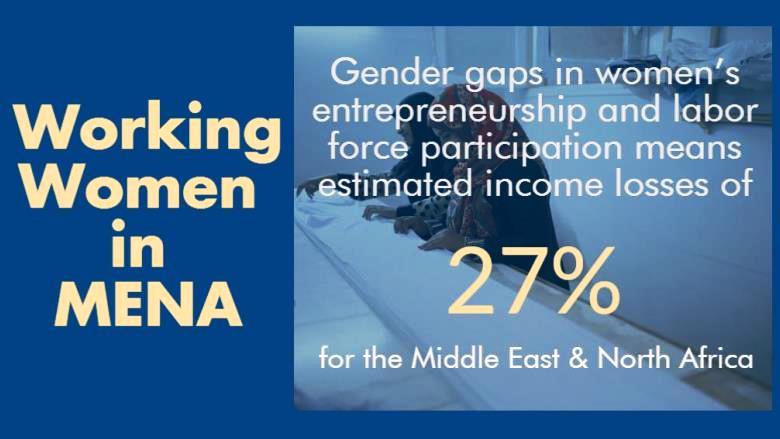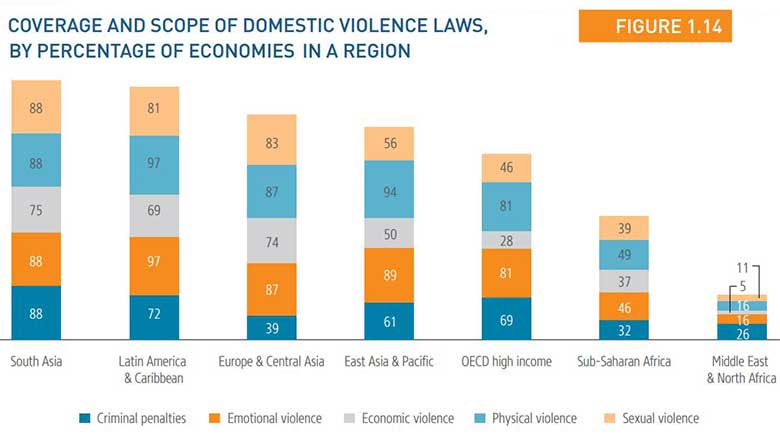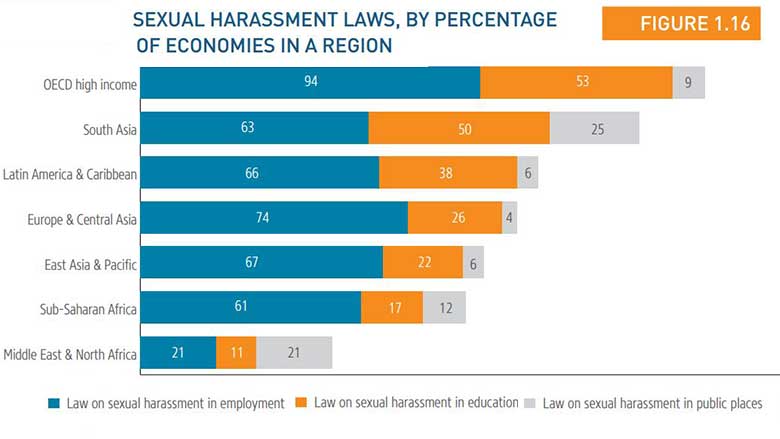The good news is that when it comes to reforms that add to women's economic opportunities and reduce the number of laws restricting their roles, countries around the world are making improvements every year. According to the latest World Bank Women Business and the Law Report 2016, in the past two years, some 65 economies have passed 94 reforms that should help improve women's lives.
Most of these reforms have taken place not in the "developed" world but in "developing" countries in Europe, Central, Asia, and Africa. The Middle East and North Africa (MENA) region has made the fewest reforms of any region- just 12. This is despite the fact that legal and business barriers preventing women from joining the labor force in MENA cause an estimated loss of 27% in income.
Here is a recap of the highlights of reforms made to women's rights, as well as discriminatory measures made against them:
Government:
- Most MENA countries don't have quotas for parliament. But Jordan, Egypt, and Djibouti legally mandate quotas of 10% of their parliamentary seats for women, with Morocco reserving 15% and Iraq, 25%.
- Recently , as well as 10% of the seats in parliament.
- Tunisia's new electoral law introduced a quota ruling that women should comprise 50% of the candidates on political party lists. .
- legislative council.
Women's representation in MENA's justice systems is, however, much lower than in politics. Regionally, the number of female justices is disproportionately low compared to the number of women in the population. (or in South Asia). Laws, too, tend to discriminate against women.
Laws:
- .
- Morocco is the only country where it's prohibited by law to discriminate against women when giving them access to credit.
- Morocco and Djibouti are the only countries that legally mandate equal remuneration for equal work and nondiscrimination based on gender in hiring for jobs.
- Algeria also legally mandates equal remuneration for equal work.
Worryingly, in the world. However, (physical, sexual, emotional, and economic): Law 293 on the Protection of Women and Family Members from Domestic Violence.



